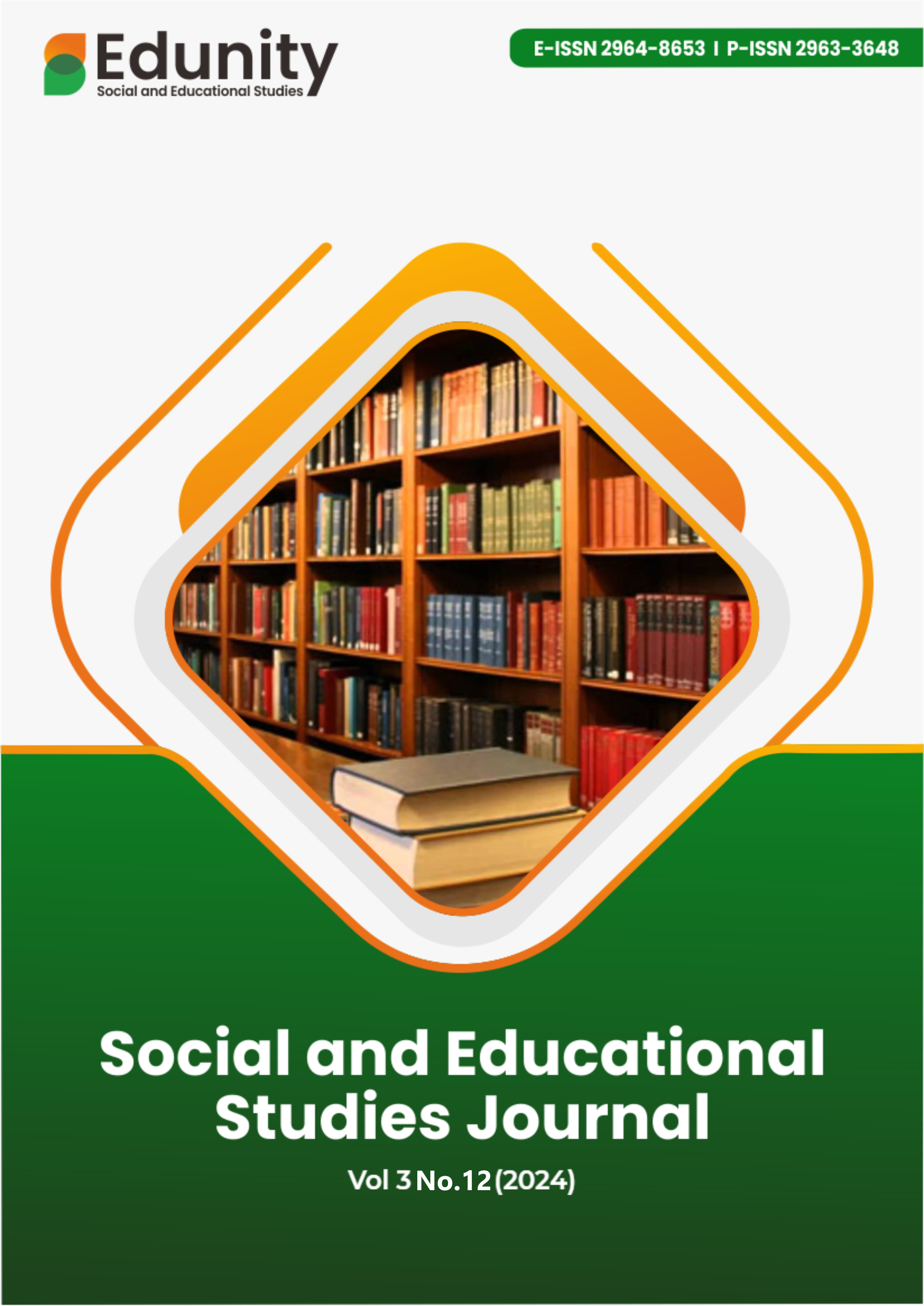The Role of Academic Motivation with Emotional Intelligence in Late Adolescence
DOI:
https://doi.org/10.57096/edunity.v3i12.351Keywords:
emotional inteligence, academic motivation, late adolescentsAbstract
The rise of digital technology has significantly affected the mental health of late adolescents, particularly through issues like cyberbullying and loneliness, which can adversely affect their academic motivation. Understanding the factors that contribute to academic success is crucial in addressing these challenges. This study aims to examine the role of emotional intelligence as a predictive factor for academic motivation among late adolescents in higher education. A quantitative approach was employed, utilizing an online questionnaire distributed to 250 college students. Data were analyzed using linear regression to assess the relationship between emotional intelligence and academic motivation. The findings reveal a significant positive correlation between emotional intelligence and academic motivation, with a coefficient of determination (R²) of 0.301. This indicates that emotional intelligence accounts for approximately 30.1% of the variance in academic motivation. The study concludes that higher emotional intelligence is associated with increased academic motivation among late adolescents. These findings underscore the importance of fostering emotional intelligence in educational settings to enhance student motivation and overall academic performance.
References
Akhund, T. M. N. U., Ajabani, D., Shaikh, Z. A., Elrashidi, A., Nureldeen, W. A., Bhatti, M. I., & Sarker, M. M. (2024). A comprehensive exploration of human communal media interaction and its evolving impact on psychological health across demographics and time. PeerJ Computer Science, 10, e2398.
Bor, W., Dean, A. J., Najman, J., & Hayatbakhsh, R. (2014). Are child and adolescent mental health problems increasing in the 21st century? A systematic review. Australian & New Zealand Journal of Psychiatry, 48(7), 606–616.
Brockman, D. D. (2018). From late adolescence to young adulthood. Routledge.
Collishaw, S. (2015). Annual research review: secular trends in child and adolescent mental health. Journal of Child Psychology and Psychiatry, 56(3), 370–393.
Drake, E. C., Sladek, M. R., & Doane, L. D. (2016). Daily cortisol activity, loneliness, and coping efficacy in late adolescence: A longitudinal study of the transition to college. International Journal of Behavioral Development, 40(4), 334–345.
Kirwan, E. M., O’Súilleabháin, P. S., Burns, A., Ogoro, M., Allen, E., & Creaven, A.-M. (2023). Exploring loneliness in emerging adulthood: A qualitative study. Emerging Adulthood, 11(6), 1433–1445.
Li, X., Pu, R., & Phakdeephirot, N. (2024). The interrelationships between emotional intelligence, achievement motivation and students’ employability: exploring the mediating effect of self-efficacy. Education+ Training, 66(7), 738–754.
MacCann, C., Jiang, Y., Brown, L. E. R., Double, K. S., Bucich, M., & Minbashian, A. (2020). Emotional intelligence predicts academic performance: A meta-analysis. Psychological Bulletin, 146(2), 150.
Nussipova, A. U., & Slanbekova, G. K. (2024). Social Media Landscape In The Republic Of Kazakhstan: Navigating Youth Behavior And Ensuring Information Security. Journal of Philosophy, Culture & Political Science, 89(3).
Orben, A., Tomova, L., & Blakemore, S.-J. (2020). The effects of social deprivation on adolescent development and mental health. The Lancet Child & Adolescent Health, 4(8), 634–640.
Patel, V., Saxena, S., Lund, C., Thornicroft, G., Baingana, F., Bolton, P., Chisholm, D., Collins, P. Y., Cooper, J. L., & Eaton, J. (2018). The Lancet Commission on global mental health and sustainable development. The Lancet, 392(10157), 1553–1598.
Raj, G., Sharma, A. K., & Arora, Y. (2024). Analyzing the Effect of Digital Technology on Mental Health. In Strategies for E-Commerce Data Security: Cloud, Blockchain, AI, and Machine Learning (pp. 54–82). IGI Global.
Schwalger, K. F. (2024). Navigating Mental Health In The Digital Age: Insights From Young Samoans And Their Communities. Auckland University of Technology.
Youvan, D. C. (2024). Navigating Psychological Transitions: Theories, Dynamics, and Life Contexts.
Zhang, S., Rehman, S., Zhao, Y., Rehman, E., & Yaqoob, B. (2024). Exploring the interplay of academic stress, motivation, emotional intelligence, and mindfulness in higher education: a longitudinal cross-lagged panel model approach. BMC Psychology, 12(1), 732.

Downloads
Published
Issue
Section
License
Copyright (c) 2024 Agrasvinta Midori Marbun, Estevania Tricia, Hanna Christina Uranus

This work is licensed under a Creative Commons Attribution-ShareAlike 4.0 International License.
Authors who publish with this journal agree to the following terms:
- Authors retain copyright and grant the journal right of first publication with the work simultaneously licensed under aCreative Commons Attribution-ShareAlike 4.0 International (CC-BY-SA). that allows others to share the work with an acknowledgement of the work's authorship and initial publication in this journal.
- Authors are able to enter into separate, additional contractual arrangements for the non-exclusive distribution of the journal's published version of the work (e.g., post it to an institutional repository or publish it in a book), with an acknowledgement of its initial publication in this journal.
- Authors are permitted and encouraged to post their work online (e.g., in institutional repositories or on their website) prior to and during the submission process, as it can lead to productive exchanges, as well as earlier and greater citation of published work.






